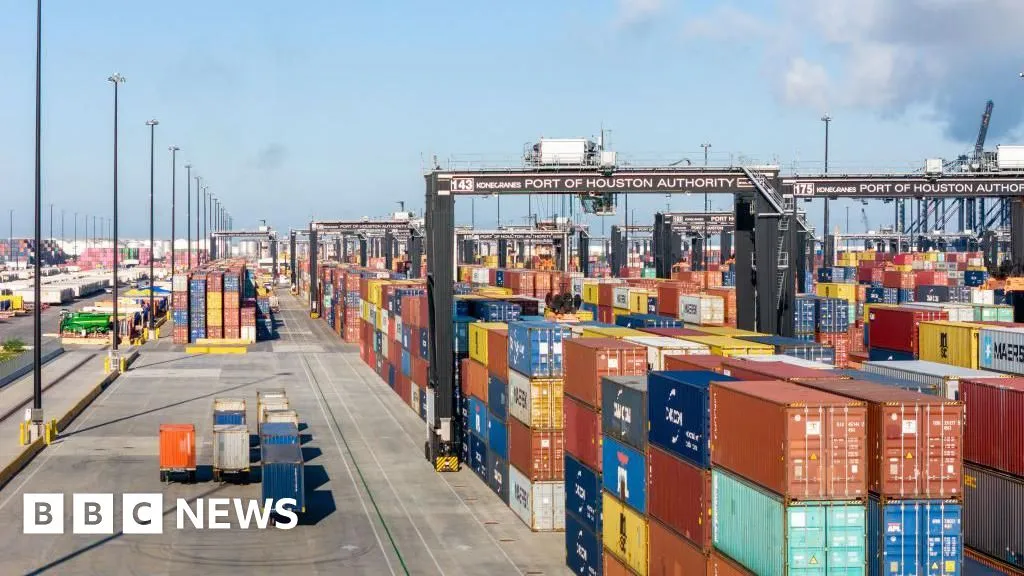- cross-posted to:
- [email protected]
- [email protected]
- cross-posted to:
- [email protected]
- [email protected]
The strike is set to significantly disrupt trade, creating uncertainty ahead of the US election.
Archived version: https://archive.ph/dfsbR
SpinScore: https://spinscore.io/?url=https%3A%2F%2Fwww.bbc.com%2Fnews%2Farticles%2Fc3vkdp3rx17o
What the union asking for sounds fair, given the circumstances.
I feel it’s more important to support the workers in this case, as it usually seems to be. They’ll be impacted by their own actions as much as the rest of us, so I’m willing to deal with some modest disruption potentially if it ends up with them getting fair treatment.
Fantastic! I love seeing all these unions taking action.
For all the lip service, biden will force a deal like he did rail workers. Probably even faster.
I stand with workers, I don’t mind the inconvenience.
You can correct me if I’m mistaken, but even though the strike was shut down, that was not the end of the admin’s efforts on the PTO issues. It took a few months, but they now have a much better deal than what they started off with.
From the IBEW:
“We know that many of our members weren’t happy with our original agreement,” Russo said, “but through it all, we had faith that our friends in the White House and Congress would keep up the pressure on our railroad employers to get us the sick day benefits we deserve. Until we negotiated these new individual agreements with these carriers, an IBEW member who called out sick was not compensated.”
That pressure, plus the IBEW’s ongoing efforts, is paying off at last. The IBEW and BNSF Railway reached an agreement April 20 to grant members four short-notice, paid sick days, with the ability to also convert up to three personal days to sick days. The union reached similar understandings with CSX and Union Pacific on March 22, and with Norfolk Southern on March 10. Unused sick time at the end of a year can be paid out or rolled into a worker’s 401(k) retirement account.
Under the Railway Labor Act, national railroad labor agreements don’t expire. Instead, the parties enter a “status quo” position: Workers remain on the job with no changes to their pay and benefits until a replacement contract is approved. The current national pact was first reached last summer by negotiators from the railroad unions, the railroads, the Labor Department and the White House.
Since then [the blocking of the December strike], several other railroad-related unions have also seen success in negotiating for similar sick-day benefits. These 12 unions represent more than 105,000 railroad workers.
“Biden deserves a lot of the credit for achieving this goal for us,” Russo said. “He and his team continued to work behind the scenes to get all of rail labor a fair agreement for paid sick leave.”
Russo said talks are continuing toward reaching a sick-days agreements with Canadian Pacific and Kansas City, recently designated a Class I rail carrier by the Surface Transportation Board.
I saw in the other comments that @[email protected] is IBEW, so maybe they can confirm.
I still see this story popping up, but though it is true Biden blocked the strike, that things were handled satisfactorily a few months afterward.
deleted by creator
Thank you, this is some of what makes me uncertain as someone outside, I have no idea as to which parties are actually receiving new benefits since most sources lump everyone together. It makes it very difficult to tell what has or hasn’t been accomplished and both sides can spin it to what they wish and most will never know the truth.
I do remember reading about the work conditions and just the logistical issues of having the job, and it did sound rather nightmarish and I had no clue why anyone would do it if they had any other choice. Props to those who do it, I’m certain it’s a crucial job, but it is not something I’m cut out for!
deleted by creator
Glad to see that Pres. Biden isn’t (yet) forcing the workers back on the job this time. Perhaps he should mitigate the effects on the economy by temporarily nationalizing the ports for the 80-day negotiation period, and hiring the longshoremen to work them?
deleted by creator





